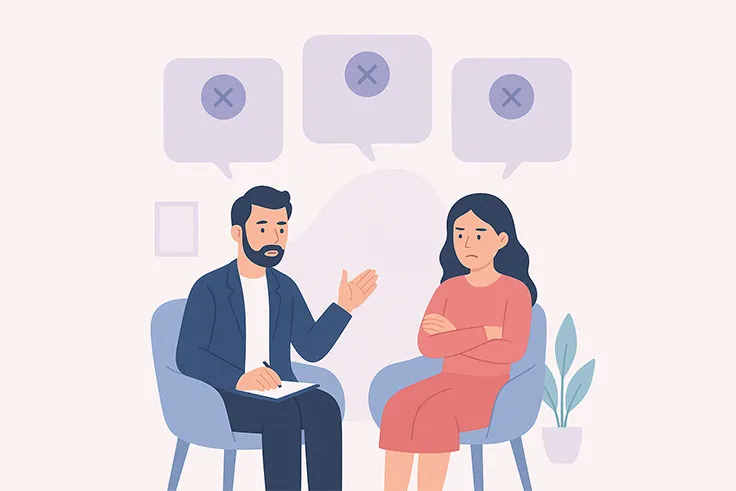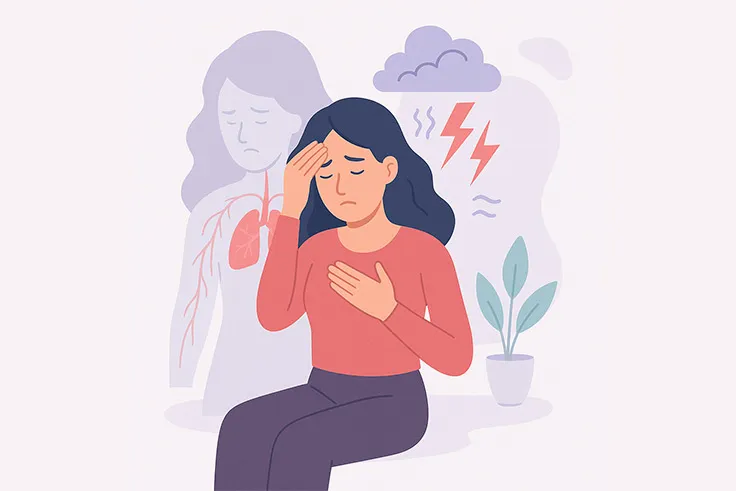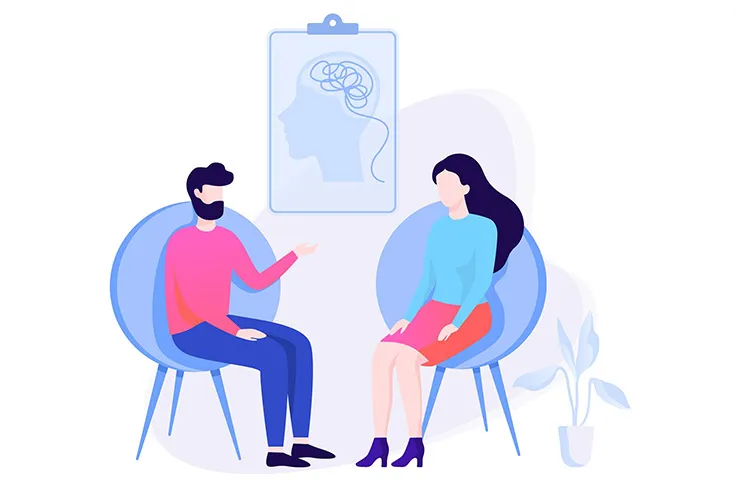
Living with Chronic Illness
A wound is the place where the Light enters you – Rumi
Chronic illness. We don’t know what the word means unless we experience it closely, as a patient, caregiver or as a close family member. Let alone understand the expanse of life altering experience it brings with it.
In a world where normalcy is celebrated, living with a chronic illness can be a life-altering experience. Moving away from a life we know can be extremely exhausting and overwhelming – both physically and mentally. A sense of loss may prevail, leading to a lack of belongingness, increasing anger and bitterness. One can find life restrictive and may be left grappling with the new challenge life has presented you with.
However, with time, chronic illness helps one to acquire a unique perspective towards life and the world, which fuels growth in the human journey. In general, differences in perspective are acquired by adversity, intentional curiosity and training. In the case of chronic illnesses, one usually lives through a different experience curated due to the new journeys their bodies are undergoing. How, then, can one make the most of this human experience? To not live through victimhood but foster immense compassion and love for their own lived experiences and others’. It is very normal to fondly reminisce about the old life. However, it is equally important to create a “new normal” and look at the future with positivity.
As a therapist and a chronic illness survivor, there are a few pointers that have helped me live my life with more courage, compassion, positivity and optimism. Sharing them with the world gives me a sense of giving back and facilitating the process of empowerment for others. It can be possible to rewire how we respond to an experience that we now have to live with from a place of gratitude instead of victimhood. Here are some ideas that can help us live a fuller life.
- Living with chronic health conditions can come with multiple changes. Medications, diet, lifestyle – everything shifts. In my experience, it is beneficial to focus on what you can do over what you cannot do. For example, if you have altered your food habits to accommodate your illness, you can focus on enjoying time at social set-ups over a cup of green tea/food that suits you rather than a conventional meal. I can choose to reframe the thought from “I can’t even enjoy a meal in the restaurant” to “I am still able to enjoy hanging out”. Small mindset shifts like these go a long way.
- Setting a realistic approach towards recovery and wellness. Relapses are more common in chronic illness than one can possibly imagine. The warriors live in the cycle of recovery and relapses. It is an exhausting process and can leave you with trauma. Through the passage of time, one learns to start taking it in their stride. However, to do this, sound mental health is critical. I have found that help from a good therapist and/or a good supportive meditation guide can go a long way. They can provide a strong foundation of a shifted perspective of acceptance that leads to an optimistic attitude towards handling the disease while the other facets of your life keep moving at the same pace. Additionally, a good patient support group can make us feel in control. One can choose what works for them, but sound mental health is the key to good disease management.
- Compassion. This may sound like just another word but has the potent magic of healing you from within. People are consistently running on the hamster wheel leading to chronic stress. Once you are a chronic illness warrior, compassion can go a long way. Start by being compassionate to yourself. Take time to have that cup of tea. Prioritise yourself and allow space to grow and heal. Create a kind and compassionate lifestyle for yourself. While recovery is liberating, remember that the disease is in hiding. While it’s natural to enjoy your body’s capacity to do more, it is imperative to take care of your body. That could translate into adhering to certain food choices, a disciplined sleep cycle, or a stronger work life balance to keep symptoms under control. We need to be kind enough to allow ourselves flexibility and space to create a new normal. We can call it “my normal” in my recovery phase. Remember that you are accountable only to yourself.
- An important pillar of our disease management is psychological wellness. Chronic illness fighters get trapped in a continuous cycle of hope, happiness and disappointment based on the disease activity, leading to stress levels equivalent to PTSD. Please understand that this is another stage of acceptance of the illness, so do not be too harsh on yourself for the feelings that you are experiencing. ‘Fear’ of getting trapped in ‘this new world’ is common and understandable. At the same time, understand that a sound mind is essential in your disease management. Reiterating the need for a therapist who specializes in trauma management, at least in the initial days, can be a game changer. As a warrior myself and a therapist, I can confidently chart out stepwise recommendations. The first step is to wholeheartedly acknowledge the emotions that come with coping, including difficult emotions of anger, sadness and disillusionment. Only when we accept the feelings can we choose not to deliberate on them more than necessary. We have to be especially mindful of the negative emotions that have the potential to disrupt our balance. Secondly, reorienting to available positive possibilities is critical. Focusing on what can be controlled over what can’t be controlled will lead to an ease in anxiety, resulting in better psychological health. In my experience, having a spiritual alignment may help you answer abstract questions you may have. With practice, it can also help you alleviate the ‘fear’ and re-instate you in the position of control.
- Build a tribe for yourself. It’s only human to seek support and connection. Any chronic illness can be extremely isolating. You can potentially feel that none of your loved ones ever understand the scale of challenges you are undergoing. Most of the chronic illnesses are invisible. Quite frankly, many loved ones mean well but will never understand the challenges we face. What helped me immensely in my personal journey is the tribe of people on similar journeys as I am. They knew exactly what bothered me, empathized with me, and gave solutions. But the biggest help of all was they lent me their ears and shoulders to cry on if it became very overwhelming and challenging. Work towards building that tribe/family and connecting with them. However, I should also mention that you will meet a wide range of people in this space too. Try to link with like-minded people. People who are interested in following a similar journey of healing than the doomsayers. People who have love, warmth and compassion to share instead of judgment. Remember your family and friends. They will always be your springboard, even if they do not always get what you are going through. A strong cohort helps you believe in yourself, and makes you your own champion and advocate.
- Be your own advocate and cheerleader. While on this journey, you will often be at a crossroads of different options available to you. Based on your socioeconomic and geographic environment, you may or may not be able to access some of these treatments. You will often question the efficacy of each one of them and get questioned about the paths you choose. In such a scenario, tuning in to your instincts will be critical and sometimes paradigm shifting in the way your disease is managed. Thus, being the biggest advocate for yourself is hugely important. I have encountered cases of people choosing unconventional paths and coming out victorious. Tuning in to your body and the signals it gives you can make a significant difference. Additionally, finding the best team of professionals in your journey will be highly beneficial. Exploring alternative approaches to care for yourself and curating a space for what’s best for you are critical steps in creating a healthy and fulfilling life with chronic illness. Never underestimate your gut instinct. There is great power in subtle energies and great merit in connecting with them.
Now that I have shared some of the ideas I have followed as a chronic illness warrior and a therapist, I do want to reiterate that it’s a journey akin to a marathon and not a sprint. So, pace yourself well and be kind to yourself. Accepting this life-changing event can and will take time. There is no deadline for acceptance, and it cannot be forced. It’s a journey that will bring a perspective shift with time and lead to acceptance. However difficult life may become, I do think chronic illness brings in some positive changes. It allows us to build the capacity to have a more mindful view of our universe. It creates more space for compassion, seeking meaning, purpose and transcendence. So, while many life opportunities can be delayed, we can be grateful for the spiritual connection that allows us to see life in our own normal, that has empathy, depth, love and compassion.
Submit a Comment
Your email address will not be published. Required fields are marked *
Related reading
What Not to Expect from Therapy: Dispelling Common Misconceptions
24 April, 2025
You finally booked your first therapy session, nerves and hope swirling inside you. Maybe you’ve heard that therapy can work wonders – and it can. In f...
It’s Not Just in Your Head: How Trauma Affects Your Body and How You Can Heal
23 April, 2025
Have you ever noticed aches, fatigue, or tension in your body after a stressful or traumatic experience? If so, you’re not alone. When we think of trauma...
How to Prepare for Your First Therapy Session: A Beginner’s Guide
5 March, 2025
Choosing to begin therapy is a courageous and empowering decision. It signifies your willingness to invest in your mental and emotional well being, it’s ...





